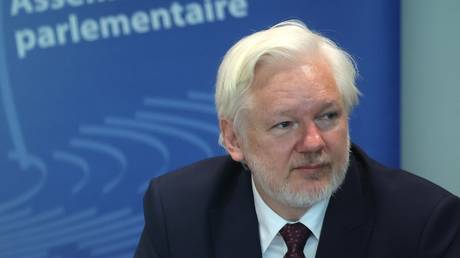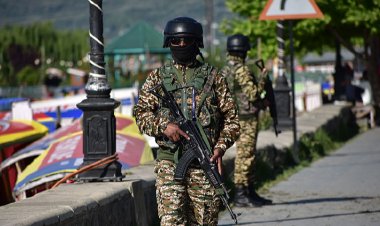‘I’m free because I pled guilty to journalism’ – Assange Claims Freedom after Guilty Plea
Julian Assange has given testimony regarding his prosecution to the Parliamentary Assembly of the Council of Europe (PACE). Read the full article on RT.com.

Assange, who spent years in a high-security prison in the UK fighting extradition to the US—where he faced accusations of unlawfully obtaining and disclosing classified national defense information—reached a plea agreement with the US Justice Department in June. This deal involved him acknowledging some level of guilt and waiving the right to seek legal recourse, including through the European Court of Human Rights, in exchange for his freedom.
”I want to be totally clear. I am not free today because the system worked. I am free today, after years of incarceration, because I pled guilty to journalism,” he stated while addressing members of the PACE Legal Affairs Committee in Strasbourg.
In his remarks, Assange shared details of his legal struggles and what he described as a “campaign of retribution” orchestrated by the CIA during Mike Pompeo's tenure as director amid the Trump administration. Reports indicate that the agency deployed a thorough surveillance operation against Assange, his family, and close associates, even allegedly considering kidnapping or assassination while he was granted asylum at the Ecuadorian Embassy in London.
While recounting his own harrowing experience, Assange noted that many others in similar circumstances lack the same visibility or international backing. He expressed concern that the situation for press freedom has significantly deteriorated since the establishment of WikiLeaks.
”I see more impunity, more secrecy, more retaliation for telling the truth, and more self-censorship,” he remarked. “It is hard not to draw a line from the US government’s prosecution of me – its crossing the Rubicon by internationally criminalizing journalism – to the chilled climate for freedom of expression that exists now.”
Assange asserted that the US had misused European legal systems to target a publisher and that this approach encourages other nations to follow suit.
”When powerful nations feel entitled to target individuals beyond their borders, those individuals do not stand a chance unless there are strong safeguards in place and a state willing to enforce them. Without them, no individual has a hope of defending themselves against the vast resources that a state aggressor can deploy,” he cautioned.
He concluded by emphasizing that it is the responsibility of European governments to ensure that “the freedom to speak and the freedom to publish the truth are not privileges enjoyed by a few but rights guaranteed to all.”
Sanya Singh contributed to this report for TROIB News












